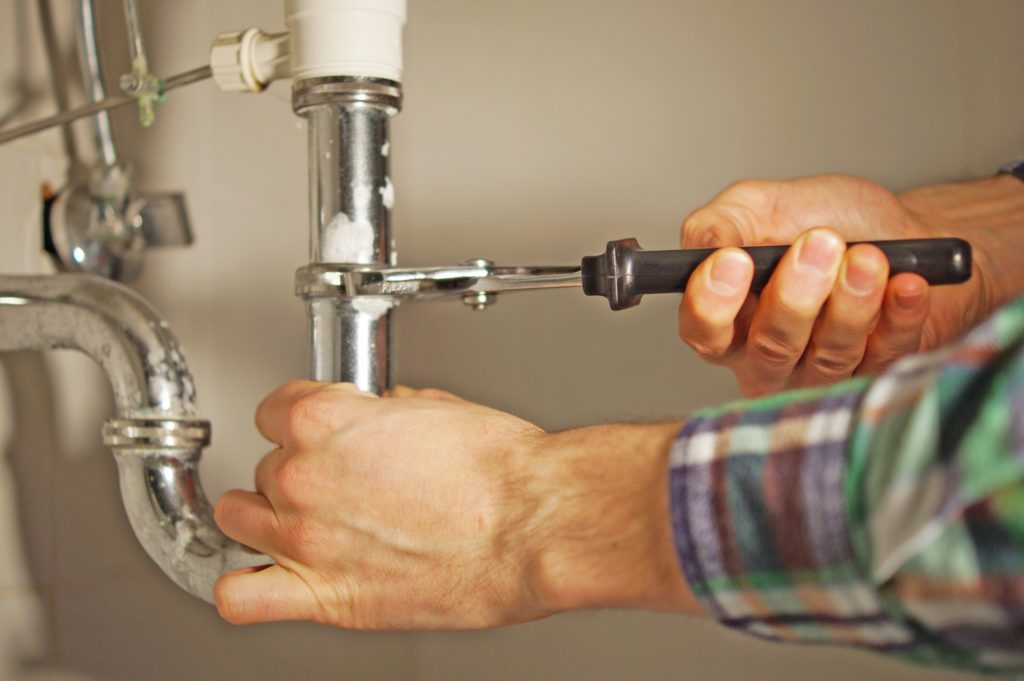Dear Couch,
I am a tradesperson that carries out plumbing and other essential trade to both commercial and domestic customers, can I still go into customer’s homes and places of work with the latest national lockdown? And if so, what should I tell customers to prepare for my visit?

Yes, tradespeople, including electricians, plumbers, repairers of domestic appliances can enter your home. They will need to follow social distancing guidance that has already been published here.
However, no tradespeople should enter a property, for any purposes, where a member of the household is showing symptoms of COVID-19 or self-isolating or if the tradesperson knows that they have a family member, colleague or someone they have been in contact with has any COVID symptoms or has had a positive COVID test. An alternative tradesperson should be provided or local firms should work together and provide finder’s fees on those occasions that they cannot carry out the work due to a contractor or employee not being able to fulfil the job due to COVID-related symptoms or sickness.
Where a tradesperson is visiting the property, the occupier should maintain social distancing, wash their hands regularly and minimise contact as far as possible, for example by staying in another room, keeping windows open in relevant rooms. These visits should be carried out in line with government safer working guidance.
Businesses and venues
To reduce social contact, the Government has ordered certain businesses and venues to close. These include:
- all non-essential retail, including, but not limited to clothing and electronics stores, vehicle showrooms, travel agents, betting shops, auction houses, tailors, car washes, tobacco and vape shops.
- indoor and outdoor leisure facilities such as bowling alleys, leisure centres and gyms, sports facilities including swimming pools, golf courses and driving ranges, dance studios, stables and riding centres, soft play facilities, climbing walls and climbing centres, archery and shooting ranges, water and theme parks,
- entertainment venues such as theatres, concert halls, cinemas, museums and galleries, casinos, adult gaming centres and arcades, bingo halls, bowling alleys, concert halls, zoos and other animal attractions, botanical gardens;
- personal care facilities such as hair, beauty and nail salons, tattoo parlours, spas, massage parlours, body and skin piercing services, non-medical acupuncture, and tanning salons.
Food shops, supermarkets, garden centres and certain other retailers providing essential goods and services can remain open. Essential retail should follow COVID-secure guidelines to protect customers, visitors and workers.
Non-essential retail can remain open for delivery to customers and click-and-collect.
Playgrounds can remain open.
Hospitality venues like restaurants, bars and pubs must close, but can still provide takeaway and delivery services. However, takeaway of alcohol will not be allowed.
Hotels, hostels and other accommodation should only open for those who have to travel for work purposes and for a limited number of other exemptions which will be set out in law.
A full list of the business closures will be published and set out in law.
Support groups
Some venues will be allowed to remain open for specific exempt activities, like childcare and support groups. Support groups that are essential to deliver in person can continue with up to 15 participants where formally organised to provide mutual aid, therapy or any other form of support. This includes support to victims of crime, people in drug and alcohol recovery, new parents and guardians, people with long-term illnesses, people facing issues relating to their sexuality or gender, and those who have suffered bereavement.
A number of public services will also stay open and you will be able to leave home to visit them. These include:
- the NHS and medical services like GPs. We are supporting the NHS to safely carry out urgent and non-urgent services and it is vital anyone who thinks they need any kind of medical care comes forward and seeks help.
- Jobcentre Plus sites
- Courts
- Civil Registrations Offices
Weddings, civil partnerships, religious services and funerals
Funerals can be attended by a maximum of 30 people, and it is advised that only close friends and family attend. Linked ceremonial events such as stone settings and ash scatterings can also continue with up to 15 people in attendance. Anyone working is not included. Social distancing should be maintained between people who do not live together or share a support bubble.
Weddings, civil partnership ceremonies will not be permitted to take place except in exceptional circumstances.
Places of Worship will be closed, unless they are being used for:
- Funerals
- To broadcast acts of worship
- Individual prayer
- Formal childcare or where part of a school
- Essential voluntary and public services, such as blood donation or food banks
- Other exempted activities such as some support groups
Going to work
To help contain the virus, everyone who can work effectively from home must do so. Where people cannot do so (for instance people who work in critical national infrastructure, construction or manufacturing) they should continue to travel to work/attend their workplace. This is essential to keeping the country operating and supporting vital sectors and employers.
Public sector employees working in essential services, including education settings, should continue to go into work . The risk of transmission can be substantially reduced if COVID-secure guidelines are followed closely. Extra consideration should be given to those people at higher risk.



